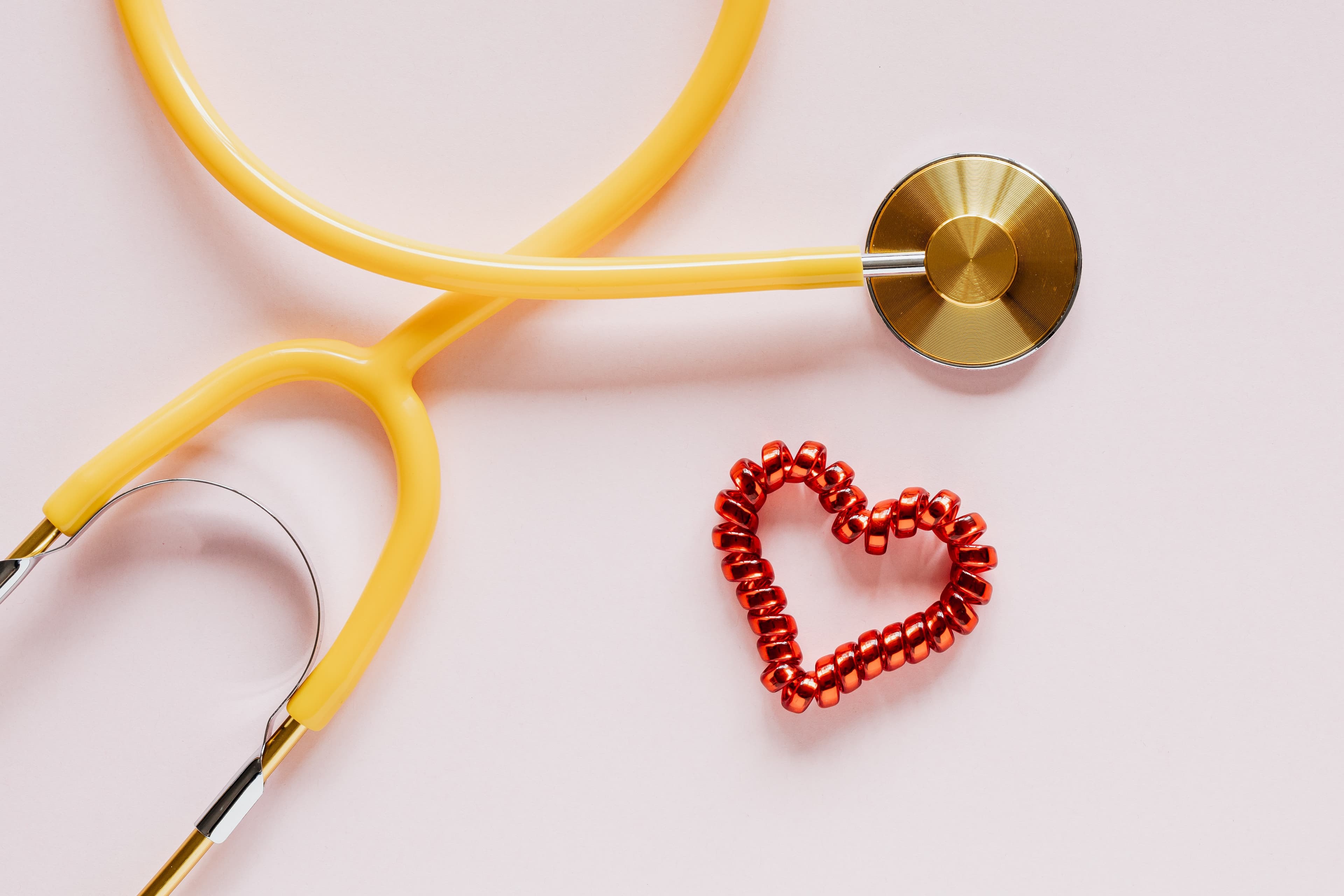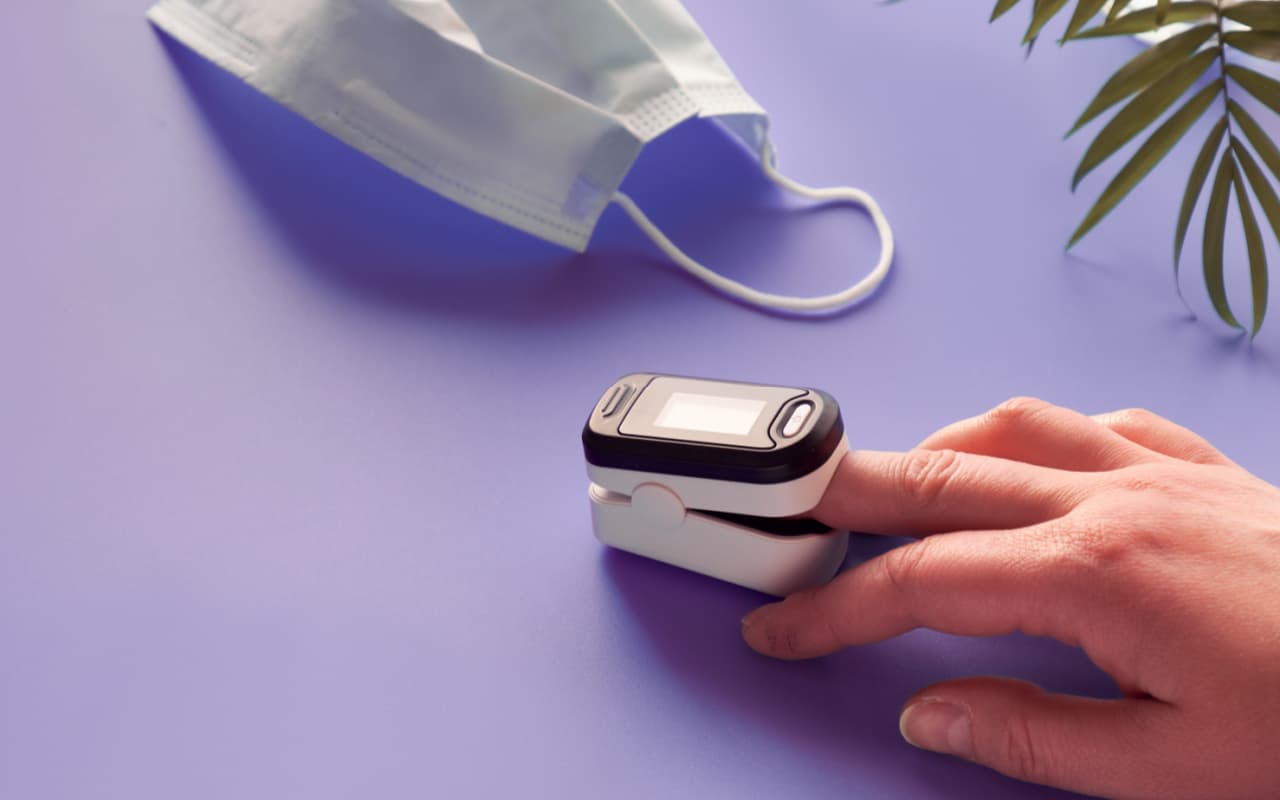
Heart disease is one of the most common chronic health problems, accounting for one in every five deaths. Many people think that heart disease is a side effect of getting older, but it doesn’t have to be. There are various things you can do to reduce your risk of a heart attack or stroke and keep your heart healthy.
To learn more about how to have a healthy heart, we reached out to Dr. Janet O’Mahony, an internal medicine physician who sees patients at the Downtown campus of Mercy Medical Center in Baltimore, Maryland.
In this article, we highlight several easy things you and your loved ones can do to ensure optimal heart health. From eating a nutritious diet to quitting smoking and exercising regularly, reducing the risk of heart disease is possible.
What You’ll Need
You don’t need any special equipment to improve your heart health.
Consider buying a home blood pressure monitor or an activity tracker if you want to keep tabs on your progress, but these items aren’t necessary. Since exercise is an important part of treatment, It’s also a good idea to buy comfortable, loose-fitting clothing as well as well-fitting shoes that support your feet.
Steps to Having a Healthy Heart
Step 1: Visit Your Doctor for Regular Checkups
There’s a reason that high blood pressure (hypertension) is called the “silent killer.” It rarely presents symptoms and tends to worsen over time. Routine visits to your doctor can identify problems like high blood pressure and high cholesterol early on, and help keep them in check.
Visit your doctor at least once a year even if you feel healthy. Conversely, visit your doctor every three months if you’ve been diagnosed with a heart condition to prevent it from worsening.
Step 2: Quit Smoking
Several lifestyle habits can reduce your risk of heart disease. One of the easiest ways to make improvements fast is by quitting smoking.
“Fortunately, fewer people are smoking these days, but it’s really hard to quit once you’re addicted to nicotine,” Dr. O’Mahony explains. “There is help out there for quitting, including medication, patches, and support. For example, 1-800-QUIT NOW offers FREE online and telephone support.”
Other resources for quitting smoking include:
American Lung Association’s Lung Helpline - 800-LUNGUSA (800-586-4872)
National Cancer Institute’s telephone quitline - 877-44U-QUIT (877-448-7848)
Step 3: Get Regular ‘Cardio’ Exercise
Cardio, or aerobic exercise, raises your heart rate so you can effectively burn fat and calories. Cardiovascular exercise is an easy way to build endurance, but it can also have lasting protective effects on your heart.
“The current recommendation is to get 30 minutes of ‘cardio’ exercise five days a week,” says Dr. O’Mahony. “This is any exercise that gets your heart rate up, including brisk walking. But it could also be biking, swimming, jogging, dancing, or calisthenics.”
Carewell Tip
Cardiovascular exercise offers other health benefits beyond the heart, such as better sleep, greater lung capacity, and less stress.
Step 4: Maintain a Healthy Weight
Being overweight or obese affects your heart’s ability to pump blood efficiently. In fact, research shows that people who are overweight are 28% more likely to develop heart disease compared to those with healthy body weight.
Losing weight can be challenging, but it is possible. Enrolling in a medically supervised weight loss program or partnering with a registered dietitian can help you make progress. Working with a professional can improve your relationship with food, encourage healthy eating habits, and teach you how to count calories.
Step 5: Eat a Healthy and Balanced Diet
Eating well doesn’t have to be complicated.
“We know that eating more fruits and vegetables is key to good health,” Dr. O’Mahony explains. “I also suggest avoiding too much salt and avoiding ‘junk foods.’ This includes sweets like cakes, candy, and donuts; salty snacks, like potato chips and french fries; and ‘junk meats’ like hot dogs, pepperoni, chicken nuggets, or bacon.”
“Fresh meat, fresh dairy, fresh vegetables, and fresh fruits are healthier for us and also help maintain an appropriate body mass index (BMI).”
Dr. O’Mahony adds “that the most heart healthy diet is thought to be the Mediterranean diet. This diet features lots of fish, olive oil, fresh fruits and vegetables, and dairy.”
Step 6: Take Steps to Manage Chronic Conditions
Heart disease is often exacerbated by chronic conditions like high blood pressure (hypertension) and diabetes.
“These are two big risk factors that you can’t really do anything to change, but you can get them under control with medication and regular doctor visits,” says Dr. O’Mahony. “It’s very important to take blood pressure medication as directed because it can decrease the risk of heart attack, heart failure, and kidney failure.”
In addition, Dr. O’Mahony recommends monitoring your blood sugar throughout the day if you have diabetes. Generally speaking, it’s good practice to assess your blood sugar levels 4-10 times a day, particularly before meals and snacks and before and after exercise.
Step 7: Drink Less Alcohol
Consider cutting back on alcohol if you’ve been diagnosed with a heart-related condition like high blood pressure or high cholesterol. Alcohol is filled with empty calories which can cause weight gain –– a leading cause of heart disease. It also increases the production of stress hormones, like cortisol, which has been linked to increased heart rate and high blood pressure.
To reduce the risk of these and other health problems, abstinence is best. But it’s okay to limit your intake to two alcoholic drinks per day if you’re a man or one alcoholic drink or less a day if you’re a woman.
Step 8: Keep Your Stress Under Control
About 55% of Americans report feeling stressed out daily. While everyone experiences stress occasionally, long-term stress may increase the risk of heart disease. As we previously mentioned, stress triggers the production of cortisol, the stress hormone. High levels of cortisol have been linked to high cholesterol and triglycerides, high blood pressure, and spikes in blood sugar.
There are various things you can do to keep stress under control, including:
Spending time with friends and family
Eating a healthy, balanced diet
Exercising regularly
Avoiding drugs and alcohol
Doing hobbies that you enjoy
Meditation
Breathing exercises
Yoga
You might benefit from medication of some sort if you continue feeling worried or overwhelmed even after implementing these practices.
How to Have a Healthy Heart - Commonly Asked Questions
1) Should I take statins if I’m at risk of heart disease?
It depends. According to Dr. O’Mahony, statin cholesterol medication is only necessary if you’ve been diagnosed with heart disease or have a higher-than-average heart disease risk.
“For example, if you have a history of heart attack or stroke, or evidence of blockages to the arteries in the heart, legs, or neck, you might benefit from statins,” Dr. O’Mahony explains. “Likewise, you might benefit if you have two or more risks, including age (over 55 in males, over 65 in females), smoking, high blood pressure, diabetes, or a family history of premature heart disease. People with these risk factors are more likely to have a heart attack or another “event” and cholesterol medication can reduce that risk.”
2) Will taking aspirin reduce my risk of heart disease?
For years, aspirin was used as a preventive measure for heart disease, but that’s no longer the case.
“This is because aspirin has its own risk of bleeding, including bleeding into the brain,” Dr. O’Mahony says. “This risk seems to be higher in women. You should definitely talk with your doctor before starting any low-dose aspirin to prevent heart disease.”
3) If I’ve been diagnosed with heart disease can I prevent it from worsening?
Yes. A heart disease diagnosis can be frightening, but it doesn’t mean you’re destined to have a heart attack or stroke. By combining these healthy lifestyle changes with prescription medication (if needed) and regular checkups you can slow the disease’s progression, relieve symptoms, and improve your quality of life.
Consider keeping a journal to track your progress. Write down the snacks and meals that you eat, document your workouts, and tabulate your blood pressure readings. You can do this the old-fashioned way, with pencil and paper, or download an app like Qardio to monitor your heart rate, blood pressure, and other metrics.
Have Cardiovascular Questions? We’re Here to Assist!
Living a heart-healthy lifestyle is a commitment that takes time and effort. Whether you’re making these changes for yourself or assisting a loved one as a family caregiver, our Care Specialists are here to help.
We can answer questions about blood pressure monitors or recommend heart-healthy snacks. Get in touch today. Call (800) 696-CARE or send an email to support@carewell.com
Other Articles You May Like

Best Pulse Oximeters of 2025
Pulse oximeters are getting much more attention these days due to the COVID-19 pandemic. You might be wondering, how does this device work and how can it help me?
Medically Reviewed by Kiera Powell, R.N.

How to Check High Blood Pressure: A Step-by-Step Guide
High blood pressure is one of the most common health problems, affecting up to 47% of adults. If you or your loved one have high blood pressure, your doctor might have asked you to keep tabs on it at home. But how do you do that?
Read More >
Chad Birt is a freelance medical writer who resides in Astoria, Oregon. When he isn't behind a keyboard, you can find him hiking, camping, or birdwatching with his wife Ella and their two dogs, Diane and Thoreau.